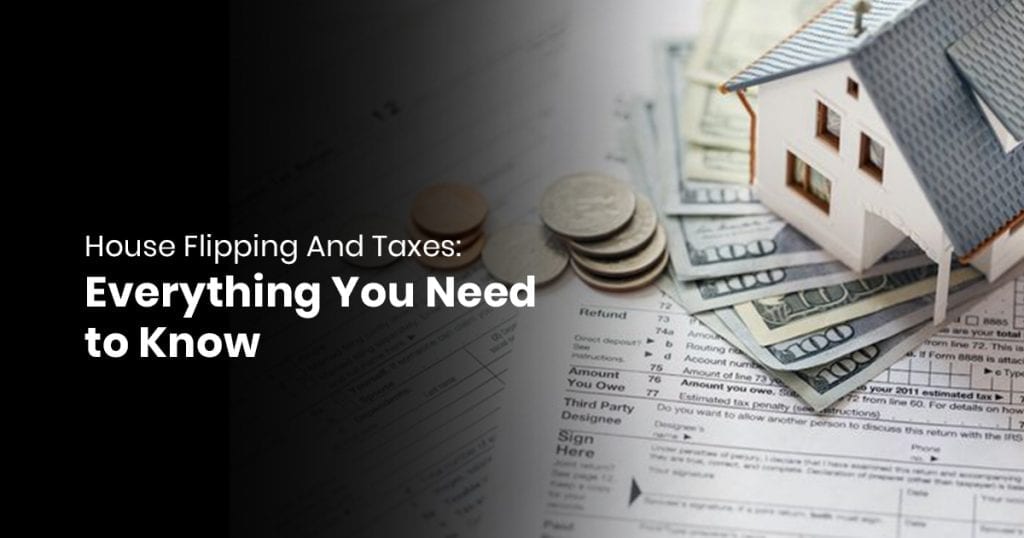You’ve bought a house that you’re interested in fixing and flipping.
You’ve calculated how much it will cost you to renovate, as well as worked out any extra expenses.
Before you start getting excited about the amount of profit you’ll make from selling the property, you need to think about taxes as they could take a chunk out of your gains.
Will you be taxed on the houses you flip?
Absolutely, and that’s mainly because the income you make from house flipping is not considered to be passive income.
It’s an active income and gets treated in the same way as an employer’s income, especially if you’re a professional flipper.
However, there are ways to reduce your taxes so that they don’t eat up your profits.
Here’s a rundown of everything you need to know about flip house tax so that the extra costs don’t sneak up on you.
Contents
- 1 The Differences Between Passive And Active Income
- 2 Are You Classified As A Real Estate Dealer By The IRS?
- 3 How The IRS Determines If You’re A Business Owner
- 4 You Might Have To Pay Quarterly Taxes
- 5 You Will Also Have To Pay Self-Employment Tax
- 6 What If You Do Hold Onto Investment Properties For Longer?
- 7 Strategies To Reduce Your Tax As A House Flipper
- 8 Related Questions
- 9 Bottom Line
The Differences Between Passive And Active Income

Sometimes people who enter the house flipping business incorrectly assume that the money they will gain from flipping homes will not be taxed because it’s passive income.
However, those profits are not passive and the IRS does not view them in such a manner.
In order to explain why this is the case, let’s take a closer look at the differences between passive and active income.
| Passive Income | Active Income |
| This is when you make your money work for you. The money flows into your bank account without you having to do anything, even if you had to make some effort in the beginning to get that money. | This is income that is made due to the effort you put in to earn the money, such as in the case of your career. But, it can also be money that’s gained from side jobs or odd jobs. |
| Examples of passive income include financial investments. You might have done some work to earn that money, but now it’s contributing to your wealth without you having to make any effort. | House flipping is considered an active income because it requires mental and perhaps even physical effort. There’s the purchasing of the property, renovations made on it, and the selling of it. Therefore, house flipping takes up a lot of time and effort, whether you’re managing the processor are more involved in all of its stages. |
| Rental income is another good example of passive income because it gets paid to you on a regular basis without you having to do anything, even if there is some work now and then on your rental property. | Even though you’re not invested in the property you’re flipping for longer than a few months, and you wash your hands clean of it once it’s sold, you’re making an active income for the months of the flipping process, and that’s the important way in which house flipping differs from rental income. |
Are You Classified As A Real Estate Dealer By The IRS?
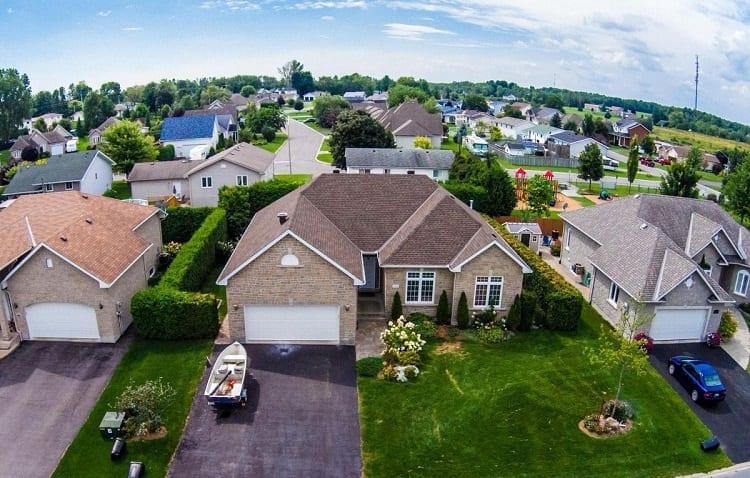
Now that we’ve looked at why house flipping is considered to be an active income, it’s important to bear in mind that if you’re house-flipping regularly, the IRS will see you as a professional house flipper.
You’ll be called a real estate dealer, a “dealer” in the same way as if you owned a store from which you were selling goods.
The IRS will treat the profits you make from flipping homes in the same way. They will be taxed and you can’t postpone them by paying them at a later stage.
The amount of tax that you could have to pay for flipping houses ranges from 10-37 percent if you’re earning an active profit from house flipping.
How The IRS Determines If You’re A Business Owner
It’s not always easy to determine if someone who flips homes is running a business or not.
So, how does the IRS determine if you’re running a real estate business?
As reported by Strategic Finance magazine, Treasury Regulation §1.1402(a)-4 notes that a person who engages in the business of selling real estate with the goal of making profits that can be gained from it is regarded as a real estate dealer.
However, a person who holds real estate for speculation or investment and receives rental income from it is not viewed as a real estate dealer.
It all comes down to the intention you have when it comes to the property.
The person’s intent is reviewed according to things like their level of activity and turnover rate when it comes to the properties.
In addition, the presence of Forms 1099-S, “Proceeds from Real Estate Transactions” on annual income tax returns will obviously give the impression that the individual is running a business in real estate.
You Might Have To Pay Quarterly Taxes
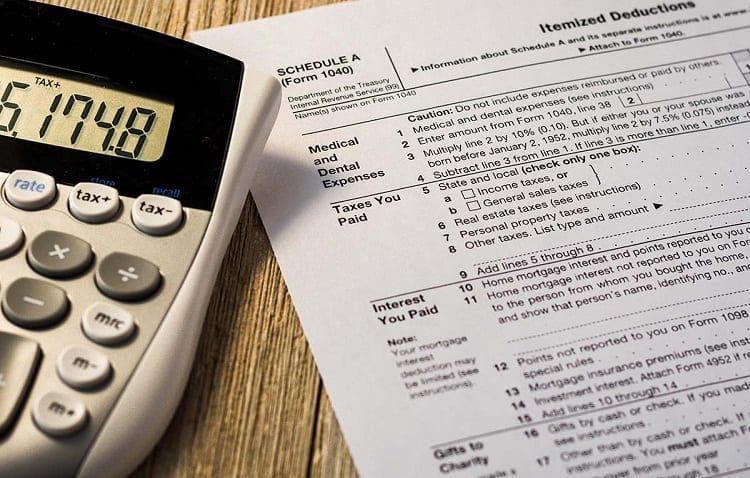
Usually, you will pay taxes at the end of the year.
But if you’re registered as an S corporation or you’re part of an LLC, and you make over $1,000 per year from house flipping, you will have to pay quarterly taxes, as Fit Small Business reports.
Most people who flip homes will have to pay these taxes, and they tend to be due in the months of April, June, September, and January.
How payment works is that the money you earn from house flipping from January to March will be due in April, and the money you earn from April to May will need to be paid in June, and so on.
You Will Also Have To Pay Self-Employment Tax
Now, if you’re considered to be a real estate dealer by the IRS, then you’ll also have to pay self-employment tax for the profits you make from flipping homes (on top of the other tax mentioned earlier).
This tax can be a cost of up to 15.3 percent! In addition, you don’t get the option of doing a Section 1031 exchange.
What’s A Section 1031 Exchange?

A Section 1031 Exchange is basically a way for you to put your taxes on hold!
How it works when it comes to flipping houses is that you can use the money you’ve gained from flipping a house for another property so that you won’t be required to pay taxes on the sale at the present time, as The Nest reports.
For example, if you’ve made a profit of $24,000 on an investment property and you use the money as a down payment on another property, you could file this as a 1031 exchange so that you can avoid paying taxes on the proceeds for the year.
You can use the 1031 exchange on different types of properties, with the catch that they have to be investments.
You won’t be allowed to postpone your taxes if you trade an investment property for your next residential home.
Unfortunately, this doesn’t work if you’re a real estate dealer because by definition you’re not holding the properties as investments.
What If You Do Hold Onto Investment Properties For Longer?
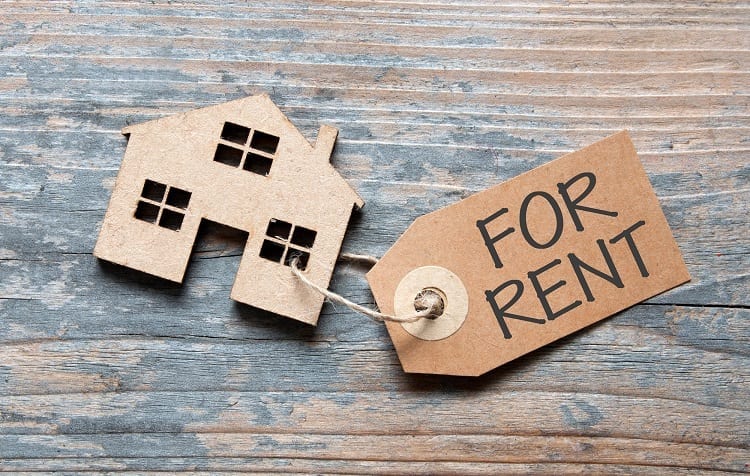
Now, you might be thinking, “Can I decrease my taxes by holding onto investment properties instead of selling them?”
The answer is yes.
If you’ve purchased an investment property but you haven’t gone ahead with selling it and this has been the case for almost a year, then you’ll still have to pay flip house tax.
However, you’ll be expected to pay what’s known as long-term capital gains on the property.
Long-term capital gains are just like your ordinary marginal income tax bracket, as Real Estate reports, which tend to be between 25 and 28 percent.
If you hold the property for over a year, then the capital gains tax will be between 0 and 20 percent, depending on how much income you earn, The Nest reports.
If you’re holding onto your investment property, this can, therefore, help to reduce the amount of tax you need to pay because long-term capital gains add up to less than the amount you’d have to pay for short-term capital gains.
Flipping a house within 12 months or less means that you’ll have to pay what’s known as short-term capital gains tax, which is the same rate as your regular tax.
To sum it up: if you’re not a professional house flipper and you only fix and flip homes once in a while but you keep the houses for long periods of time before selling them, this will be seen as an investment by the IRS instead of as a business.
This could work to your advantage to help you decrease your taxes.
Strategies To Reduce Your Tax As A House Flipper

There are ways in which you can lower your taxes when flipping homes.
The most obvious method is to hold the property for longer than 12 months.
However, this is not always a realistic or appealing option if you want to flip homes as a business and make a lot of profit from it.
In fact, even if you want to flip just one or two homes within a year, it might prove unrealistic to hold onto your properties for that amount of time.
And why should you? After all, the whole point of flipping homes is that you make a profit within a short timeframe, which tends to be 180 days on average.
Due to this, let’s consider other strategies that can lower the amount of flip house tax you have to pay.
You Can Lower Taxes By Living In The Investment Property
If you’re not too serious about starting a house flipping business and you’ve got just one home you want to flip, moving into the home and living in it once all its repairs and renovations are done could enable you to decrease your tax.
You will be able to move the tax consideration on the sale of the house from active income into capital gains at a later stage.
In addition to this, if you end up staying in the house for two of the five years before the house gets sold, you might even avoid being taxed on the gains completely, as Fit Small Business reports.
How this works out is that if you live in the property for those two years, you won’t be charged capital gains tax on profits of up to $250,000 as an individual, and up to $500,000 if you’re married.
You Should Deduct Your Expenses
An important way in which you can reduce your taxes is to keep track of all your expenses, both big and small, during the house flipping process as these might be able to get removed from the amount of tax you need to pay.
There are many different tax benefits in real estate from which you can benefit as a house flipper, so it pays to know about them.
Here are some common – and maybe some surprising – expenses you can deduct during the process of flipping houses, so make sure you don’t forget about them.
Capital Expenses

The money that goes into buying and repairing your investment property is considered to be capital expenditure by the IRS.
Examples of expenses include construction team labor and the cost of materials that are used during the renovating phase of the flipping process.
These costs can be deducted from your taxable income, however, you can only claim them after you have sold the investment property.
Therefore, it’s important to keep track of all your capital expenses so you don’t miss out on some nice deductions.
Soft Expenses
Otherwise known as “soft costs,” these are almost always deductible.
Soft costs can be defined as expense items that aren’t thought of as direct construction expenses during the flipping process.
However, these contribute to the house-flipping project and can add up quickly, so you don’t want to lose lots of money to them.
Soft costs would include things like financing expenses, legal fees, and architectural expenses that occur during the house flipping process.
Vehicle Expenses
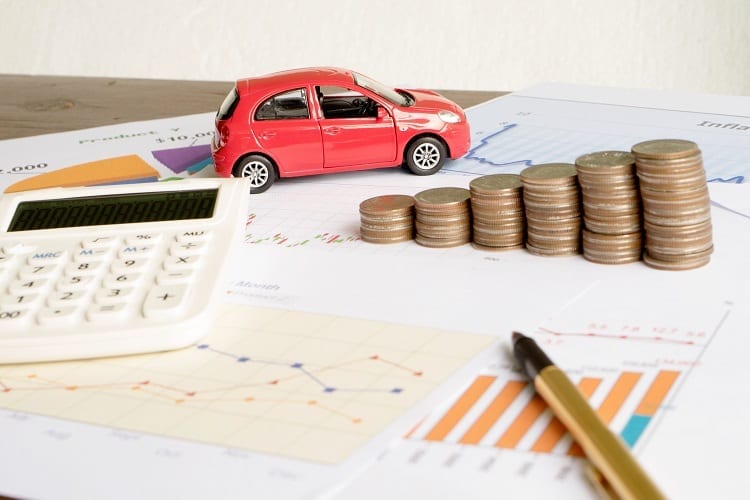
Did you know that you can also claim for expenses that are related to driving to and from the building site?
Well, you can!
Examples of costs that can be deducted include all the gas and mileage used to transport materials to and from the building site, or due to the trips you make to regularly inspect the work that is happening there.
Again, it’s important to keep records of the mileage and gas that goes towards your investment property.
Business Expenses
If the IRS has classified you as a real estate dealer, then you can also deduct for things like rent or mortgage payment for your home office, including utility bills and office supplies.
Since 2018, you’re allowed to deduct a standard rate of $5 per square foot of your home office, but you can’t exceed 300 square feet.
It’s vital to bear in mind that you can’t get deductions for your office space if it gets used for purposes other than business, so make sure it’s not a space that’s shared for lots of different activities.
Advertising Expenses

When you’re ready to sell your investment property, you will obviously have to do some advertisement and marketing to lure interested buyers to it.
You will also have realtor fees to pay, and all of these can be viewed as deductible expenses because they form part of your house flipping process.
Related Questions
Do You Need To Get A License Before You Can Flip Homes?
This usually isn’t necessary, but it’s best to check the rules with your state.
There could be rules pertaining to the way in which your business runs.
If you are considered a real estate developer, your state could require you to have a contractor’s license, as Fit Small Business states.
What About State And Local Taxes?
If you house flip, you’ll need to pay state and local income taxes on profits that you make.
These vary according to where you live.
For example, if you’ve got investment properties in Baltimore City, Maryland, you’ll have to add an extra 8 percent to your tax liability, as Lending Home reports.
Bottom Line
House flipping can bring you large profits, there’s no doubt about that.
However, it’s important to realize that you will be taxed on the money that you make. That shouldn’t put you off house flipping, though. Knowledge is power – and can be profitable.
By understanding how you’ll be taxed as well as how you can reduce the amount of tax you’ll need to pay, this can help you earn greater profits from house flipping, prevent unexpected costs that can eat into your profits, and continue to stay in Uncle Sam’s good books.

